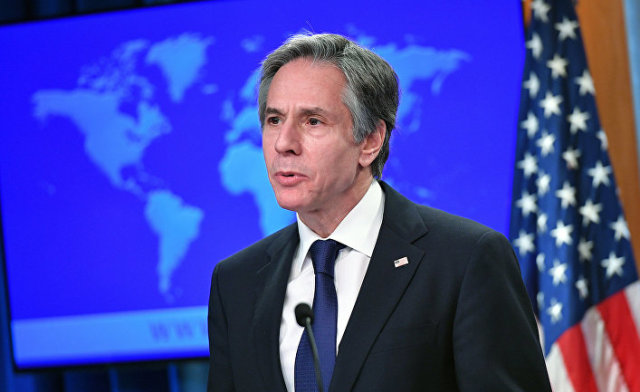Washington. October 14th. INTERFAX - US Secretary of State Anthony Blinken met with Israeli Foreign Minister and Deputy Prime Minister Yair Lapid, the State Department reports.
"The Secretary of State and the Foreign Minister discussed a number of issues, including Iran, Syria and the People's Republic of China," the statement said.
It is noted that Blinken and Lapid discussed "the possibilities of intensifying efforts to normalize the situation in the region," as well as "energy and economic cooperation."
"The Secretary of State reiterated the US administration's support for measures that expand the prospects for a two-state solution and significantly improve the lives of Palestinians and Israelis," the State Department said.
In addition, Blinken reaffirmed the US commitment to Israel's security.
Earlier, the US Secretary of State at a press conference following talks with the Foreign Ministers of Israel and the UAE said that Washington considers diplomacy to be the most effective way to solve the Iranian nuclear problem, but in case of failure at the diplomatic level, they will consider other options for resolving the issue.
"We will consider any option regarding the solution of challenges from Iran. We still believe that diplomacy is the best and most effective way, but diplomacy requires the participation of two sides, and we do not see Iran's readiness for this," he said.
In turn, Lapid stated: "Every day, every delay in negotiations brings Iran closer to a nuclear bomb. Iran is obviously procrastinating (with negotiations - IF), trying to deceive the world by continuing to enrich uranium."
The Minister noted that Israel reserves the right to take "all necessary measures" to prevent this.
In 2015, Iran and the six countries - the five permanent members of the UN Security Council and Germany - concluded a nuclear agreement - the Joint Comprehensive Plan of Action (JCPOA), which limited Iran's development of a nuclear program in exchange for a step-by-step lifting of sanctions. Former US President Donald Trump unilaterally withdrew from the JCPOA in 2018 and resumed anti-Iranian sanctions, which prompted Tehran to gradually abandon compliance with some of the terms of the deal.

